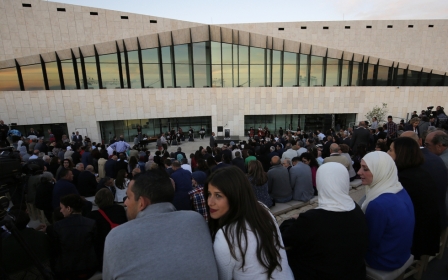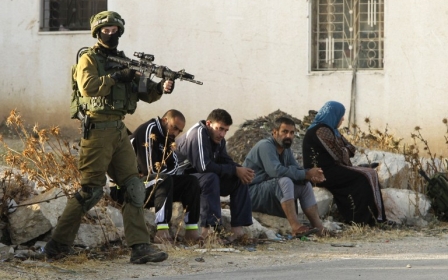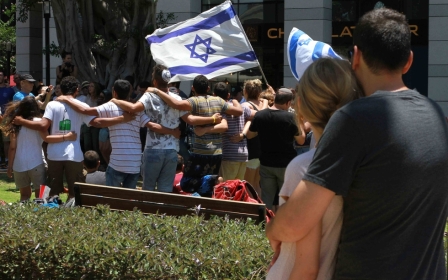Israel reopens Palestinian crossings after Tel Aviv attack
Entry points have been reopened connecting Gaza and the West Bank to Israeli territory following a recent deadly shooting in Tel Aviv

A Palestinian is checked at an Israeli checkpoint between the town of Bethlehem and Jerusalem (AFP)
Published date: 13 June 2016 08:03 BST
|
Last update: 8 years 5 months ago
Israel has reopened Palestinian crossing points from the occupied West Bank and Gaza Strip following a three-day closure put in place after last week's deadly Tel Aviv shooting, the army said on Monday.
Crossings were reopened overnight as planned, an army spokeswoman said, though "security checks are ongoing" in Yatta, the West Bank village where the two Tel Aviv attackers were from.
The village had been put on lockdown in the hours after Wednesday night's attack that killed four Israelis and wounded five others.
Crossing points were shut on Friday morning, preventing Palestinians from entering Israel and annexed east Jerusalem.
An exception was made however for the first Friday prayers of Ramadan, with thousands of Palestinians allowed to visit Jerusalem's Al-Aqsa mosque compound, the third-holiest site in Islam.
Israel announced a range of measures following the Tel Aviv attack, which saw two Palestinian cousins open fire at a busy cafe.
Prime Minister Benjamin Netanyahu also announced the cancellation of tens of thousands of permits for Palestinians to enter Israel and east Jerusalem during Ramadan.
The moves drew international concern, with France strongly condemning the attack but also warning against further exacerbating tensions.
United Nations rights chief Zeid Ra'ad Al Hussein's office in a statement on Friday also condemned the attack but said the Israeli measures may amount to "collective punishment".
New MEE newsletter: Jerusalem Dispatch
Sign up to get the latest insights and analysis on Israel-Palestine, alongside Turkey Unpacked and other MEE newsletters
Middle East Eye delivers independent and unrivalled coverage and analysis of the Middle East, North Africa and beyond. To learn more about republishing this content and the associated fees, please fill out this form. More about MEE can be found here.




